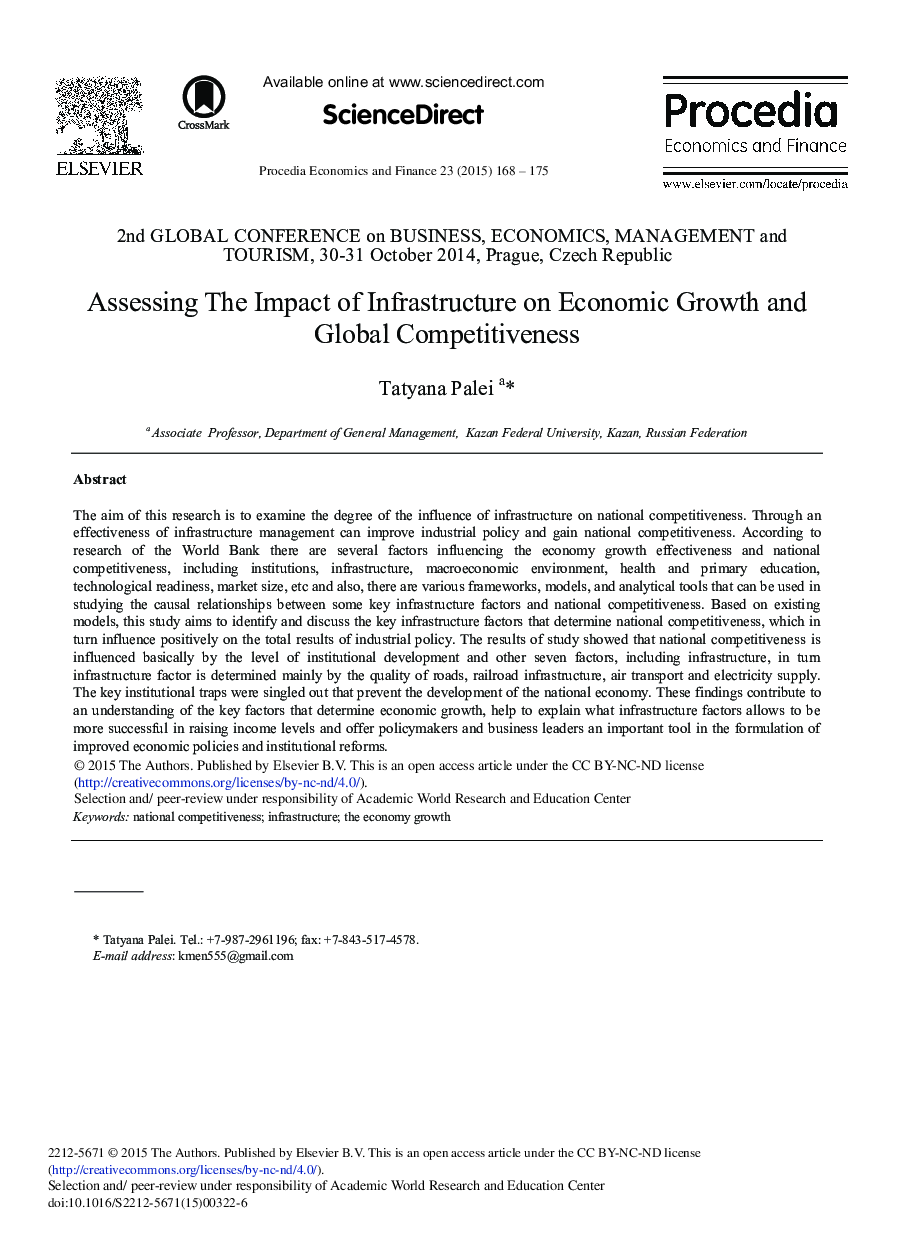| Article ID | Journal | Published Year | Pages | File Type |
|---|---|---|---|---|
| 981386 | Procedia Economics and Finance | 2015 | 8 Pages |
The aim of this research is to examine the degree of the influence of infrastructure on national competitiveness. Through an effectiveness of infrastructure management can improve industrial policy and gain national competitiveness. According to research of the World Bank there are several factors influencing the economy growth effectiveness and national competitiveness, including institutions, infrastructure, macroeconomic environment, health and primary education, technological readiness, market size, etc and also, there are various frameworks, models, and analytical tools that can be used in studying the causal relationships between some key infrastructure factors and national competitiveness. Based on existing models, this study aims to identify and discuss the key infrastructure factors that determine national competitiveness, which in turn influence positively on the total results of industrial policy. The results of study showed that national competitiveness is influenced basically by the level of institutional development and other seven factors, including infrastructure, in turn infrastructure factor is determined mainly by the quality of roads, railroad infrastructure, air transport and electricity supply. The key institutional traps were singled out that prevent the development of the national economy. These findings contribute to an understanding of the key factors that determine economic growth, help to explain what infrastructure factors allows to be more successful in raising income levels and offer policymakers and business leaders an important tool in the formulation of improved economic policies and institutional reforms.
